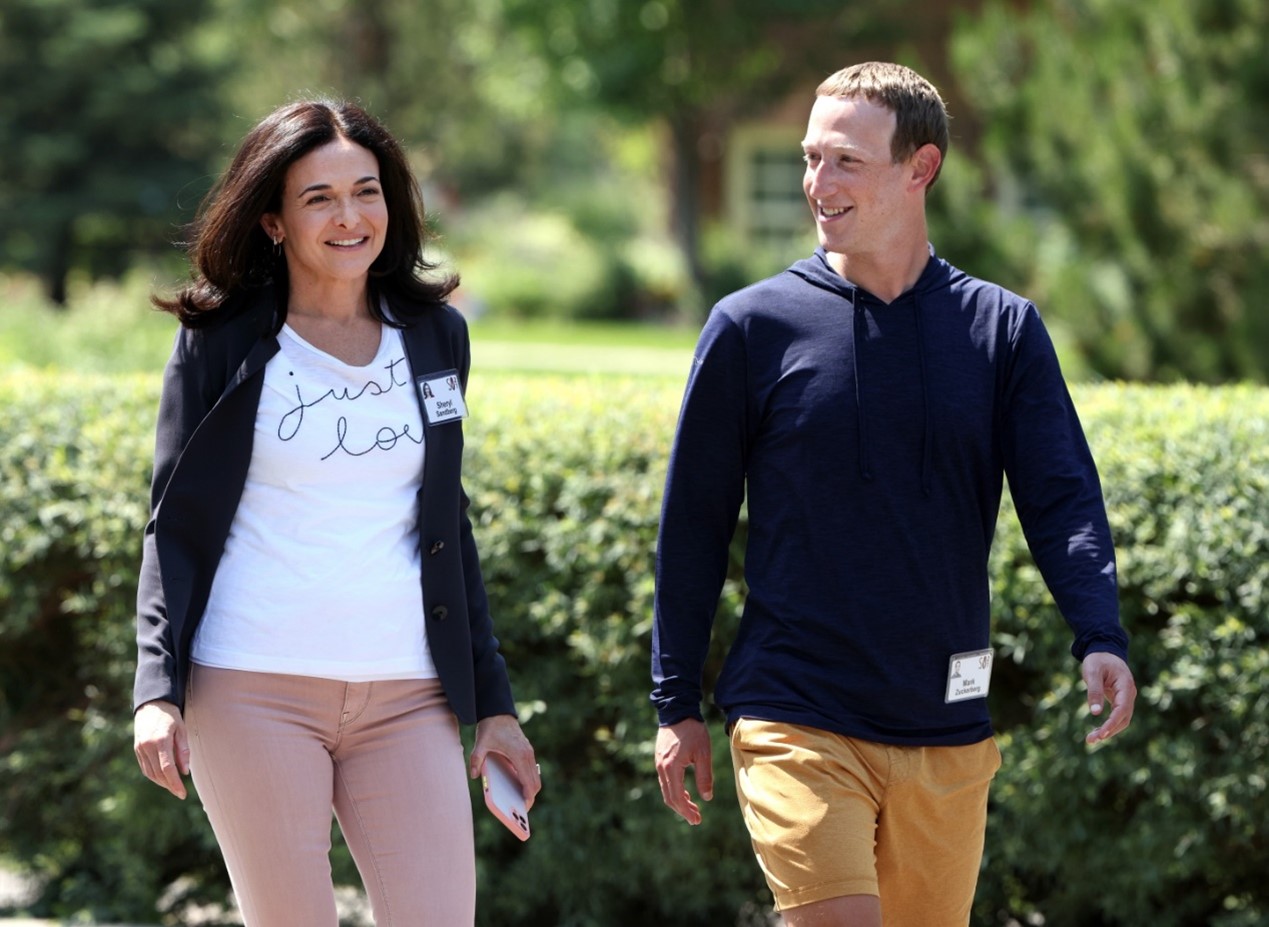
尼尔·豪威有好几个身份,他既是几本书的作者,也是华盛顿地区的一名咨询顾问,还是Hedgeye风险管理公司的一名资产管理高管。
他也是在美国最早从事代际研究的人,“千禧一代”这个词就是他在1991年创造的。他在1997年威廉·斯特劳斯合著的《第四次转折》一书中大胆地指出,每一代人在历史的“长周期”中都有属于自己的角色。他预测美国在2005年到2020年将陷入危机时代。有媒体曾嘲笑他的研究是“伪科学”,但转头便将“千禧一代”一词用得不亦乐乎。
这本书不仅是史蒂夫·班农的最爱,也是知名投资策略师基里尔·索科洛夫等著名商界大佬的最爱。《纽约时报》最近在《风格》栏目中指出,豪威的理论已经日益渗透进流行文化当中。《纽约时报》的《图书》栏目甚至邀请了弗朗西斯·福山这样的权威人士来评论这一理论。福山是一位伟大的政治学家,曾在柏林墙倒塌和苏联解体时预言了“历史的终结”。
豪威最近对《财富》表示,大约十年前,他意识到自己有必要为《第四次转折》写一部续作。因为他认为,美国2005年前后将发生一次“催化剂事件”,进而引发“危机时代”的到来,最终将导致“大贬值”,届时“这片土地将迎来真正的苦难,爆发严重的危机,甚至有可能引发阶级矛盾、种族主义、民族主义和帝国主义方面的问题。”这个时代将在2020年代达到顶点,期间“专制、极端、强硬”的年长领导人(就像特朗普这种)将与千禧一代和Z世代形成尖锐对立,而X世代的中年人则被夹在他们中间。他表示:“在全球金融危机爆发后不久,我就认为这是绝对会发生的事。它爆发的正是时候——也就是2007年到2008年,这与我们预测的非常接近了。”
在一次采访中,豪威向《财富》谈到了他的新书——即将于7月18日出版的《第四次转折已至》(The Fourth Turning Is Here)。他是这本书的唯一作者,因为此前与他合著《第四次转折》的威廉·斯特劳斯已于2007年去世。他谈到了他和斯特劳斯25年前提出的理论是如何一步步照进现实的,以及千禧一代和Z世代(他称之为“祖国人”)是如何让他感到惊讶的。作为一个骄傲的X世代,他认为他这一代人“仿佛陈年的美酒”,而“极端、专制”的婴儿潮一代人也不出所料地变得越来越像特朗普。
豪威还解释了为什么他对美国经济感到担忧,为什么他告别了华盛顿,搬到了西弗吉尼亚的山区,以及为什么他对拜登在学生贷款问题上的做法持有疑虑。不过他表示,当“第四次转折”完成时,这一切将都不再重要。
千禧一代的标志性人物:泰勒·斯威夫特
豪威和斯特劳斯的“第四次转折”理论将千禧一代称为“英雄”的一代,他们注定要在一场关乎国家经济和政治走向的斗争中与婴儿潮一代对抗。不过,这并不意味着他们会很轻易地取得成功。
站在千禧一代的叙事角度上,豪威发现,千禧一代是充分相信精英主义的一代,为此他们接受了大量教育,参加了许多考试,也背负了最多的学生贷款。他们也是在课外补习上卷到极致的一代。他们放弃了在趴体上飞叶子,但是却选择了喝“聪明水”提高成绩。他们相互抱团取暖,不管是“志愿服务”的流行,还是“错过恐惧症”的蔓延,以及他们的社交媒体依赖症和“数字监视强迫症”(也就是随时随地在手机上监视对方在干什么),都已经成了这一代人独有的烙印。
豪威在他的新书中写道:“努力实现、努力表现、努力融入、努力管理风险和取悦他人……千禧一代努力同时搞定所有这些,这将千禧一代推向了一种优化的、清单化的甚至是完美主义倾向的生活方式,这往往会让他们处在慢性压力之中。”豪威认为,由于经济现实与千禧一代的自我实现不一致,他们对资本主义越来越持怀疑态度。“很多人认为肆无忌惮的市场是吃小孩儿的妖怪。”
他表示,泰勒·斯威夫特就是一个经典的“主流的千禧一代的品牌形象”。当被问到她的身上是否能体现出千禧一代的完美主义和焦虑时,豪威只是简单地说,她是一个“标志性的”人物。

除了有最好的词曲作者的加持,以及美国音乐界最富有的超级巨星的身份以外,豪威表示,泰勒·斯威夫特的公共形象“一切都是完美安排和上演的产物”。
豪威注意到了她精心安排的现场表演,她在经济上取得的惊人成功,以及她是如何重录唱片以便收回它们的所有权的。“这是她摆脱市场的混乱的方法。”他说。这体现了她“想要拥有一切,让一切都在我的掌控之中”的态度。
X世代领导的“财富500强”公司能“跳出条条框框思考”
豪威的理论认为,X世代(也就是Z世代的父母一辈)是疲惫不堪和愤世嫉俗的一代,但是在“第四次转折”中,他们将成为危机中的关键领导者。而从2023年的“财富500强”榜单上年地,X世纪实际上已经整体成为了美国商界的掌舵人。
“他们非常足智多谋,也非常务实,”豪威在谈到自己这一代人时表示:“他们不太指望别人,而是指望让自己承担所有责任,但他们也会跳出固有的思维模式。”
他的观点背后的经济和文化分析可以追溯到70年代,也就是“X世代”的童年时代,当时很多家长因为工作忙,会将孩子一个人留在家里不管。等他长大时,80和90年代的劳动力市场的高端已经被“婴儿潮”一代所占据,低端则愈发难以为继,培训机会和福利越来越少。豪威写道:“大多数X世代人都欢迎管制较少的经济。他们认为,既然规则是针对他们的,那么规则当然是越少越好。”更艰难的是,X世代人都被告知“他们没有未来,所以每个人都认为,他们唯一的机会就是冒险,并且变得与众不同。”
因此,X世代天生就有创业倾向,这一点在硅谷体现得更加明显,比如马克·安德里森、杰夫·贝佐斯、彼得·蒂尔和雪莉·桑德伯格等人。“多亏了X世代,美国企业才得以重回世界之巅(以市值计算),小企业也在公众的高度尊重下加入了创业大军。”

豪威对《财富》表示,当危机到来时,X世代是“非常适合当领导”的一代人。不过除了硅谷以外,X世代在企业里当一把手的进度仍然较为缓慢。但豪威认为这种情况很快就会有所改观,因为X世代很适合当下这种动荡混乱的时代。“他们提出的解决方案往往不是别人给他们准备好的方案。我的意思是说,他们是希望没有规则的一代。”
金融市场的大量证据表明,一场历史性的机制性变革已经发生了。在2022年和2023年,全球央行进行了史上最大规模的协调加息,以应对自上世纪80年代初以来最严重的恶性通胀,很多央行甚至宣布,全球金融危机以来的“宽松货币时代”和“到处是泡沫”的时代已经结束了。
另一方面,白宫已经正式认领了媒体使用已久的“拜登经济学”一词,从此拜登对“涓滴效应”的长期战争又有了新武器。“涓滴效应”是上世纪80年代以来的主流哲学,也被称为“里根经济学”。一些行业人士认为,商业地产行业有可能会出现一次“翻天覆地”的大危机,不少投资者、CEO和亿万富翁预测,该行业将出现一次近乎全面重估的调整。
在“拜登经济学”当道的情况下,资本主义世界的前景也变得难以预料。拜登政府延续了特朗普的对华政策,继续谋求在工业领域与中国脱钩。而“里根经济学”下的工业政策,实际上就是没有工业政策,但这实则有利于金融领域和全球化的发展。不过在中美两国铁了心相互竞争的情况下,这似乎不再是一个选项了。
Z世代:不凑热闹,拒绝内卷
至于Z世代,豪威表示,他们会看着千禧一代不断尝试实现新鲜事物,然后淡然地说一句:“不了,谢谢”。
“Z世代并不喜欢这种内卷文化。就算你工作再鸡血,能买得一起一个鸽子笼那么大的房子,也不意味着你的人生就有好的未来。”他补充道,由于租金的上升,很多Z世代不得不回归20年代中期的那种合租生活。但另一方面,Z世代赶上了美国历史上最红火的劳动力市场,最低工资水平也有所上涨,而他们真正想要的是“能够在长期真正帮助到他们的东西”。
在豪威的研究中,他还发现了一件“很有意思”的事,那就是“年轻一拨”的千禧一代和Z世代对上大学这件事的热度在消退。“我们看到大学的录取率出现了大幅下降,尤其是非名牌大学。”他认为,这是由于现在的美国年轻人想要一种不同的学习方式和工作体验——不过他没有提到一件事,那就是美国的大学学费显著上涨,大量美国中产阶级已经负担不起孩子的学费了。
“他们现在想做一些对当下就很重要的事情,他们不想像千禧一代一样,无限期地暂停自己的人生,只是为了成为有史以来受教育程度最高的一代。”他认为一种新的运动正在兴起:“我现在就想做点什么,我现在就想赚钱,我现在就想靠我的价值挣钱。”
豪威在他的新书里写道:Z世代的记忆里“没有一个繁荣和自信的美国”。在他们的印象中,美国要么是深陷衰退泥潭,要么就是挣扎着试图摆脱衰退。由于对美国经济和美国文化的危险和陷阱有着天生的理解,Z世代学会了“待在家里,遵守规则,不要让那些尽力照顾你的长辈感到难过。”但同时,他们X世代的父母也给了他们最大的支持和陪伴,而不是像他们自己的父母一样将孩子抛在那里不管。
另外,Z世代似乎也并不介意住在家里。他们深知“你没有必要为了一些愚蠢的事情工作,它既不会使你进步,对国家也没有任何好处。”

当然,美国的Z世代之所以大量在家“躺平”,一个重要原因是美国正面临着历史性的高通胀,眼下是房价和租金最难以承受的时期。因此与其孤身在外“蜗居”,还不如住在父母家里。根据CreditKarma公司的数据,截至2022年,在三分之一的Z世代仍与父母住在一起。另外,豪威对Z世代就业观的分析也是极其准确的——Z世代想要的是能实现自身价值的工作。这已经成了一种全球性的现象,中国的青年失业率也达到了历史新高,部分原因就是因为新一代的年轻人不想再从事蓝领工作。
豪威在书中指出,Z世代比他们的前辈更加“温良恭俭”,他们发生校园霸凌、青少年怀孕、酗酒和吸毒的比例都在迅速下降,而且Z世代对社会危害和他人的需求非常敏感。豪威还指出,Z世代的人生信条就是“控制情绪,让别人开心”。Z世代成长过程中看过的很多儿童娱乐产品都是以情绪管理为主题的,比如《冰雪奇缘》和《头脑特工队》等等。
当然,这种生活方式的缺点,就是持续不断的压力。有大量证据表明,受疫情影响,Z世代的心理健康处于脆弱状态。美国公共卫生署署长就在今年5月份宣布,孤独已经成了一个重要的公共卫生问题,其危害相当于每天抽十几支烟,而年轻人受到的打击更甚。
美国经济可能会撞到哪些冰山
目前2023年已经过半了,美国经济的表现出奇地好,豪威的“危机论”是否还会言中?备受外界瞩目的6月份CPI数据显示,美国的通胀率已降至3%的区间,华尔街所有人都在预期的衰退非但没有到来,美国经济软着陆的可能性反而正在增加。
说到软着陆的问题时,豪威表示:“我认为这种可能性是存在的,但是并不很大。”理由是“有些大行业已经成了经济中的冰山,而且它们的透明度很低。”
比如他提到了私募行业,私幕占美国经济的比重已经远超2010年代,并且这个行业是完全不透明的。“没人知道私募股权到底值多少钱”,而且所有坏账都可以在下行周期中隐藏起来,“按市值计价”只会在最合适的时机发生。“他们没有展示任何东西,也没有进行过任何一次估值下调。他们在等待,考虑到这些公司的杠杆率,如果没有什么东西能救他们的话,他们就会陷入困境。”
从长期看,他也很关心经济,他每天都在看经济指标,因为他的“日常工作”就是资产管理。“所有的长期指标都是红的,所有的中期指标都是黄的,所有的近期指标都是绿的。”当然,如果“第四次转折”如他所预料的那样发生了,这些将都无关紧要,因为整个经济都会重组。
豪威对房地产市场也有他个人的分析。现在他住在弗吉尼亚州北部的“华盛顿郊区”,但由于不堪房价之扰,他打算搬到西弗吉尼亚的“一座山顶上,是彻底的农村地区”。他说,他已经计划了很长时间了,“在那里生活,成本便宜得多。”(财富中文网)
——Chloe Berger和Hillary Hoffower补充报道。
译者:朴成奎
尼尔·豪威有好几个身份,他既是几本书的作者,也是华盛顿地区的一名咨询顾问,还是Hedgeye风险管理公司的一名资产管理高管。
他也是在美国最早从事代际研究的人,“千禧一代”这个词就是他在1991年创造的。他在1997年威廉·斯特劳斯合著的《第四次转折》一书中大胆地指出,每一代人在历史的“长周期”中都有属于自己的角色。他预测美国在2005年到2020年将陷入危机时代。有媒体曾嘲笑他的研究是“伪科学”,但转头便将“千禧一代”一词用得不亦乐乎。
这本书不仅是史蒂夫·班农的最爱,也是知名投资策略师基里尔·索科洛夫等著名商界大佬的最爱。《纽约时报》最近在《风格》栏目中指出,豪威的理论已经日益渗透进流行文化当中。《纽约时报》的《图书》栏目甚至邀请了弗朗西斯·福山这样的权威人士来评论这一理论。福山是一位伟大的政治学家,曾在柏林墙倒塌和苏联解体时预言了“历史的终结”。
豪威最近对《财富》表示,大约十年前,他意识到自己有必要为《第四次转折》写一部续作。因为他认为,美国2005年前后将发生一次“催化剂事件”,进而引发“危机时代”的到来,最终将导致“大贬值”,届时“这片土地将迎来真正的苦难,爆发严重的危机,甚至有可能引发阶级矛盾、种族主义、民族主义和帝国主义方面的问题。”这个时代将在2020年代达到顶点,期间“专制、极端、强硬”的年长领导人(就像特朗普这种)将与千禧一代和Z世代形成尖锐对立,而X世代的中年人则被夹在他们中间。他表示:“在全球金融危机爆发后不久,我就认为这是绝对会发生的事。它爆发的正是时候——也就是2007年到2008年,这与我们预测的非常接近了。”
在一次采访中,豪威向《财富》谈到了他的新书——即将于7月18日出版的《第四次转折已至》(The Fourth Turning Is Here)。他是这本书的唯一作者,因为此前与他合著《第四次转折》的威廉·斯特劳斯已于2007年去世。他谈到了他和斯特劳斯25年前提出的理论是如何一步步照进现实的,以及千禧一代和Z世代(他称之为“祖国人”)是如何让他感到惊讶的。作为一个骄傲的X世代,他认为他这一代人“仿佛陈年的美酒”,而“极端、专制”的婴儿潮一代人也不出所料地变得越来越像特朗普。
豪威还解释了为什么他对美国经济感到担忧,为什么他告别了华盛顿,搬到了西弗吉尼亚的山区,以及为什么他对拜登在学生贷款问题上的做法持有疑虑。不过他表示,当“第四次转折”完成时,这一切将都不再重要。
千禧一代的标志性人物:泰勒·斯威夫特
豪威和斯特劳斯的“第四次转折”理论将千禧一代称为“英雄”的一代,他们注定要在一场关乎国家经济和政治走向的斗争中与婴儿潮一代对抗。不过,这并不意味着他们会很轻易地取得成功。
站在千禧一代的叙事角度上,豪威发现,千禧一代是充分相信精英主义的一代,为此他们接受了大量教育,参加了许多考试,也背负了最多的学生贷款。他们也是在课外补习上卷到极致的一代。他们放弃了在趴体上飞叶子,但是却选择了喝“聪明水”提高成绩。他们相互抱团取暖,不管是“志愿服务”的流行,还是“错过恐惧症”的蔓延,以及他们的社交媒体依赖症和“数字监视强迫症”(也就是随时随地在手机上监视对方在干什么),都已经成了这一代人独有的烙印。
豪威在他的新书中写道:“努力实现、努力表现、努力融入、努力管理风险和取悦他人……千禧一代努力同时搞定所有这些,这将千禧一代推向了一种优化的、清单化的甚至是完美主义倾向的生活方式,这往往会让他们处在慢性压力之中。”豪威认为,由于经济现实与千禧一代的自我实现不一致,他们对资本主义越来越持怀疑态度。“很多人认为肆无忌惮的市场是吃小孩儿的妖怪。”
他表示,泰勒·斯威夫特就是一个经典的“主流的千禧一代的品牌形象”。当被问到她的身上是否能体现出千禧一代的完美主义和焦虑时,豪威只是简单地说,她是一个“标志性的”人物。
除了有最好的词曲作者的加持,以及美国音乐界最富有的超级巨星的身份以外,豪威表示,泰勒·斯威夫特的公共形象“一切都是完美安排和上演的产物”。
豪威注意到了她精心安排的现场表演,她在经济上取得的惊人成功,以及她是如何重录唱片以便收回它们的所有权的。“这是她摆脱市场的混乱的方法。”他说。这体现了她“想要拥有一切,让一切都在我的掌控之中”的态度。
X世代领导的“财富500强”公司能“跳出条条框框思考”
豪威的理论认为,X世代(也就是Z世代的父母一辈)是疲惫不堪和愤世嫉俗的一代,但是在“第四次转折”中,他们将成为危机中的关键领导者。而从2023年的“财富500强”榜单上年地,X世纪实际上已经整体成为了美国商界的掌舵人。
“他们非常足智多谋,也非常务实,”豪威在谈到自己这一代人时表示:“他们不太指望别人,而是指望让自己承担所有责任,但他们也会跳出固有的思维模式。”
他的观点背后的经济和文化分析可以追溯到70年代,也就是“X世代”的童年时代,当时很多家长因为工作忙,会将孩子一个人留在家里不管。等他长大时,80和90年代的劳动力市场的高端已经被“婴儿潮”一代所占据,低端则愈发难以为继,培训机会和福利越来越少。豪威写道:“大多数X世代人都欢迎管制较少的经济。他们认为,既然规则是针对他们的,那么规则当然是越少越好。”更艰难的是,X世代人都被告知“他们没有未来,所以每个人都认为,他们唯一的机会就是冒险,并且变得与众不同。”
因此,X世代天生就有创业倾向,这一点在硅谷体现得更加明显,比如马克·安德里森、杰夫·贝佐斯、彼得·蒂尔和雪莉·桑德伯格等人。“多亏了X世代,美国企业才得以重回世界之巅(以市值计算),小企业也在公众的高度尊重下加入了创业大军。”
豪威对《财富》表示,当危机到来时,X世代是“非常适合当领导”的一代人。不过除了硅谷以外,X世代在企业里当一把手的进度仍然较为缓慢。但豪威认为这种情况很快就会有所改观,因为X世代很适合当下这种动荡混乱的时代。“他们提出的解决方案往往不是别人给他们准备好的方案。我的意思是说,他们是希望没有规则的一代。”
金融市场的大量证据表明,一场历史性的机制性变革已经发生了。在2022年和2023年,全球央行进行了史上最大规模的协调加息,以应对自上世纪80年代初以来最严重的恶性通胀,很多央行甚至宣布,全球金融危机以来的“宽松货币时代”和“到处是泡沫”的时代已经结束了。
另一方面,白宫已经正式认领了媒体使用已久的“拜登经济学”一词,从此拜登对“涓滴效应”的长期战争又有了新武器。“涓滴效应”是上世纪80年代以来的主流哲学,也被称为“里根经济学”。一些行业人士认为,商业地产行业有可能会出现一次“翻天覆地”的大危机,不少投资者、CEO和亿万富翁预测,该行业将出现一次近乎全面重估的调整。
在“拜登经济学”当道的情况下,资本主义世界的前景也变得难以预料。拜登政府延续了特朗普的对华政策,继续谋求在工业领域与中国脱钩。而“里根经济学”下的工业政策,实际上就是没有工业政策,但这实则有利于金融领域和全球化的发展。不过在中美两国铁了心相互竞争的情况下,这似乎不再是一个选项了。
Z世代:不凑热闹,拒绝内卷
至于Z世代,豪威表示,他们会看着千禧一代不断尝试实现新鲜事物,然后淡然地说一句:“不了,谢谢”。
“Z世代并不喜欢这种内卷文化。就算你工作再鸡血,能买得一起一个鸽子笼那么大的房子,也不意味着你的人生就有好的未来。”他补充道,由于租金的上升,很多Z世代不得不回归20年代中期的那种合租生活。但另一方面,Z世代赶上了美国历史上最红火的劳动力市场,最低工资水平也有所上涨,而他们真正想要的是“能够在长期真正帮助到他们的东西”。
在豪威的研究中,他还发现了一件“很有意思”的事,那就是“年轻一拨”的千禧一代和Z世代对上大学这件事的热度在消退。“我们看到大学的录取率出现了大幅下降,尤其是非名牌大学。”他认为,这是由于现在的美国年轻人想要一种不同的学习方式和工作体验——不过他没有提到一件事,那就是美国的大学学费显著上涨,大量美国中产阶级已经负担不起孩子的学费了。
“他们现在想做一些对当下就很重要的事情,他们不想像千禧一代一样,无限期地暂停自己的人生,只是为了成为有史以来受教育程度最高的一代。”他认为一种新的运动正在兴起:“我现在就想做点什么,我现在就想赚钱,我现在就想靠我的价值挣钱。”
豪威在他的新书里写道:Z世代的记忆里“没有一个繁荣和自信的美国”。在他们的印象中,美国要么是深陷衰退泥潭,要么就是挣扎着试图摆脱衰退。由于对美国经济和美国文化的危险和陷阱有着天生的理解,Z世代学会了“待在家里,遵守规则,不要让那些尽力照顾你的长辈感到难过。”但同时,他们X世代的父母也给了他们最大的支持和陪伴,而不是像他们自己的父母一样将孩子抛在那里不管。
另外,Z世代似乎也并不介意住在家里。他们深知“你没有必要为了一些愚蠢的事情工作,它既不会使你进步,对国家也没有任何好处。”
当然,美国的Z世代之所以大量在家“躺平”,一个重要原因是美国正面临着历史性的高通胀,眼下是房价和租金最难以承受的时期。因此与其孤身在外“蜗居”,还不如住在父母家里。根据CreditKarma公司的数据,截至2022年,在三分之一的Z世代仍与父母住在一起。另外,豪威对Z世代就业观的分析也是极其准确的——Z世代想要的是能实现自身价值的工作。这已经成了一种全球性的现象,中国的青年失业率也达到了历史新高,部分原因就是因为新一代的年轻人不想再从事蓝领工作。
豪威在书中指出,Z世代比他们的前辈更加“温良恭俭”,他们发生校园霸凌、青少年怀孕、酗酒和吸毒的比例都在迅速下降,而且Z世代对社会危害和他人的需求非常敏感。豪威还指出,Z世代的人生信条就是“控制情绪,让别人开心”。Z世代成长过程中看过的很多儿童娱乐产品都是以情绪管理为主题的,比如《冰雪奇缘》和《头脑特工队》等等。
当然,这种生活方式的缺点,就是持续不断的压力。有大量证据表明,受疫情影响,Z世代的心理健康处于脆弱状态。美国公共卫生署署长就在今年5月份宣布,孤独已经成了一个重要的公共卫生问题,其危害相当于每天抽十几支烟,而年轻人受到的打击更甚。
美国经济可能会撞到哪些冰山
目前2023年已经过半了,美国经济的表现出奇地好,豪威的“危机论”是否还会言中?备受外界瞩目的6月份CPI数据显示,美国的通胀率已降至3%的区间,华尔街所有人都在预期的衰退非但没有到来,美国经济软着陆的可能性反而正在增加。
说到软着陆的问题时,豪威表示:“我认为这种可能性是存在的,但是并不很大。”理由是“有些大行业已经成了经济中的冰山,而且它们的透明度很低。”
比如他提到了私募行业,私幕占美国经济的比重已经远超2010年代,并且这个行业是完全不透明的。“没人知道私募股权到底值多少钱”,而且所有坏账都可以在下行周期中隐藏起来,“按市值计价”只会在最合适的时机发生。“他们没有展示任何东西,也没有进行过任何一次估值下调。他们在等待,考虑到这些公司的杠杆率,如果没有什么东西能救他们的话,他们就会陷入困境。”
从长期看,他也很关心经济,他每天都在看经济指标,因为他的“日常工作”就是资产管理。“所有的长期指标都是红的,所有的中期指标都是黄的,所有的近期指标都是绿的。”当然,如果“第四次转折”如他所预料的那样发生了,这些将都无关紧要,因为整个经济都会重组。
豪威对房地产市场也有他个人的分析。现在他住在弗吉尼亚州北部的“华盛顿郊区”,但由于不堪房价之扰,他打算搬到西弗吉尼亚的“一座山顶上,是彻底的农村地区”。他说,他已经计划了很长时间了,“在那里生活,成本便宜得多。”(财富中文网)
——Chloe Berger和Hillary Hoffower补充报道。
译者:朴成奎
Neil Howe is many things: The author of several books, a Washington D.C.-area consultant, and an asset management executive at Hedgeye Risk Management.
He’s also the man who coined the term “millennial” back in 1991 as part of his wholesale invention of a new field: generational research. His book The Fourth Turning, coauthored in 1997 with William Strauss, provocatively argued that each generation has a specific role to play in the “secular cycles” of history—and predicted that a crisis era would engulf the United States from roughly 2005 to 2020. Derided as “pseudoscience” by the same media that happily appropriated his term for the emerging millennial generation, this modern-day Nostradamus has gained increasing caché, if not quite full adherence.
It has famously become a favorite book of Steve Bannon’s, but also notable business figures such as investment strategist Kiril Sokoloff. The New York Times recently acknowledged the theory’s increasing entry into pop culture in its Styles section, while its Books section tapped no less an authority to review it than Francis Fukuyama, the great political scientist who predicted “the end of history” when the Berlin Wall crumbled and the USSR fell.
About a decade ago, Howe recently told Fortune, he realized he would have to write a sequel, as his prediction called for a “catalyst” event around 2005 to trigger a “crisis era” that would ultimately result in a “great devaluation” in which “real hardship will beset the land, with severe distress that could involve questions of class, race, nation, and empire.” This period would climax in the 2020s as “authoritarian, severe, unyielding” elder leaders (not unlike Donald Trump) would face off against the millennial and Gen Z cohorts, with Gen X midlifers navigating between them. “It wasn’t too long after the GFC [Great Financial Crisis] that I thought this was definitely it,” he said. “It came along right around the right moment—2007, 2008 was very close to what we predicted.”
In a wide-ranging interview, Howe talked to Fortune about The Fourth Turning Is Here, out July 18 as a solo effort, without his former coauthor (William Strauss died in 2007). He described how his theory has largely played out as he expected when he and Strauss set it down over 25 years ago, while remarking on how the younger generations of millennials and Gen Z (what he calls “the homelanders”) have surprised him. A proud Gen Xer himself, he reveals how he sees his cohort aging like a fine wine, while the “severe, authoritarian” boomers that he warned about are aging just as expected.
Howe also explained why he’s worried about the state of the economy, why he’s leaving the DC suburbs for a rural, mountainous area in West Virginia, and why he’s skeptical about President Joe Biden’s actions on student debt. But when the fourth turning is complete, he added, none of that will matter.
An ‘iconic’ millennial: Taylor Swift
Howe and Strauss’ fourth turning theory labels the millennials as the “hero” generation, destined to confront the boomers in a struggle over the direction of the country’s economic and political future. This does not mean they’ve had an easy time of it, though.
As he looks back on the millennial narrative, Howe sees a generation that fully trusts in the ethic of meritocracy, while putting itself through an extraordinary amount of schooling, testing, and examination. The generation with the most student-loan debt also embraced AP tests and extracurricular activities to an unprecedented degree, and forsook party drugs for “smart drug” stimulants instead. They leaned on each other for support, with Howe noting the vogue for “volunteering,” the plague of “FOMO,” and the thirst for social media and digital surveillance where they all tracked what each other were doing.
“The struggle to achieve, behave, fit in, risk-manage, and please others—all at the same time—is pushing Millennials toward an optimizing, menu-driven, even perfectionist approach to life that often leaves them chronically stressed,” Howe writes in his new book. As economic reality refuses to line up with millennial self-application, he concludes that they grow skeptical of capitalism, and “many regard the unbridled marketplace as a child-devouring Moloch.”
He cites the figure of Taylor Swift as a classic “mainstream … millennial brand.” When asked about whether she sums up the millennial combination of perfectionism and anxiety, Howe simply said that she’s “iconic.”
FERNANDO LEON—TAS23/GETTY IMAGES FOR TAS RIGHTS MANAGEMENT
Apart from working with the best songwriters and being one of the music industry’s wealthiest superstars, Howe said that “everything is perfectly arranged and staged” in Swift’s public persona.
Howe noted her carefully stage-managed live shows, her astounding financial success, and even how she re-recorded her catalog to reclaim ownership of it. It’s “her way of getting out from the chaos of the marketplace,” he said. It shows her attitude of “I’m going to own it all. It’s all going to be under my control.”
Fortune 500 led by Gen Xers that can ‘think outside the box’
Howe’s theory holds that Gen X was the jaded and cynical generation that raised Gen Z, and during the fourth turning they will emerge as crucial leaders in a crisis. As it so happens, the Fortune 500 list for 2023 revealed that Gen X is in fact now in the driver’s seat for corporate America.
“They’re very resourceful, very pragmatic,” Howe says of his own generation. “They don’t really count on much, they expect they have to do everything themselves, and to think outside the box.”
The economic and cultural analysis underlying his vision traces back to childhoods in the 1970s when “latchkey” parenting arose, then a labor market in the ’80s and ’90s marked by an upper tier, hogged by the larger boomer generation, and an increasingly tenuous lower tier with fewer and fewer training programs and welfare benefits. “Most Xers welcomed a less regulated economy,” he writes, “figuring that—since the rules were rigged against them—fewer rules were better.” More darkly, he adds that because Xers both assumed and were told they “they had no future, each figured his or her only chance was to take risks and be different.”
Certainly, the entrepreneurial bent of the Gen X cohort, especially in Silicon Valley, has been plain to see for years, as Howe reels off a list including Marc Andreessen, Jeff Bezos, Peter Thiel, and Sheryl Sandberg. “Thanks to Xers,” he argues, “U.S. corporations have returned to the top of the world (by market cap) and small business has joined the military in high public esteem.”
With a time of crisis now upon us, Howe told Fortune that Gen X will be “a pretty good generation to have” in leadership. Noting they have been slow to move into the top CEO position, with the notable exception of Silicon Valley, he said he expects that to change as they’re well-suited for the fluid, chaotic crisis era upon us. “They sort of put together a solution which is not the one prepared for them. I mean, they expected for there to be no rules.”
There is a wealth of evidence in financial markets that a historic regime change has indeed occurred. In 2022 and 2023, the greatest coordinated hiking of interest rates by central banks worldwide has just occurred, fighting the biggest inflation surge since the early 1980s, leading many to declare an end to the “era of easy money” or “everything bubble” in place since the Great Financial Crisis.
More broadly, the White House has adopted the media portmanteau “Bidenomics” and joined it to Biden’s long war on “trickle down,” the reigning philosophy since those same 1980s, also known as “Reaganomics.” A commercial real estate crisis dubbed “apocalyptical” by some industry professionals is leading many investors, CEOs, and billionaires to predict a correction that borders on a total revaluation of the sector.
The world of capitalism also promises to look very different under Bidenomics, with an embrace of industrial policy growing out of the decoupling with China that began under President Donald Trump and becoming a pillar of Biden’s economic policy. The industrial policy under Reaganomics, of course, was to have no industrial policy, which de facto rewarded the financial sector and an increasingly globalized world. That does not appear to be an option with China and the U.S. determined to compete.
Gen Z says no to the ‘rabbit hutch’ world of ‘hustle culture’
And then there’s Gen Z. Howe says they look at millennials’ constant attempt to achieve new things and say: no thanks.
“They don’t think a lot of this ‘hustle economy’” culture, he says. “Just hustling around and affording your rabbit-hutch apartment isn’t really building a future,” he added, commenting on how rent inflation has forced millennials into group-living arrangements reminiscent of the mid-20th century. Gen Z is benefitting from a historically tight labor market, he said, noting that their reservation wage has increased, and what they really want is “something that’s going to help them for the long term.”
The “fascinating” thing he’s seen in his research is how “late wave” millennials and Gen Z are avoiding college. “We’ve seen a huge drop in enrollment. particularly in the non-prestige colleges.” He chalks it up to younger Americans wanting a different kind of learning and a different kind of job experience, although he did not touch on the remarkable inflation of college tuition that has made it simply unaffordable for huge swaths of middle-class Americans.
“They want to do something that’s relevant right now. They don’t like the idea that a lot of millennials had, with life indefinitely on hold,” en route to becoming the most educated generation ever. He thinks there’s a new movement afoot: “I want to do something right now. I want to make money right now. I want to actually be paid for my worth right now.”
Howe writes in his new book that Gen Z has “no memory of a prosperous or confident America—that is, of living in a country that isn’t either plunging into a recession or struggling to get out of one.” With an innate understanding of the dangers and pitfalls of the American economy and culture, Gen Z has learned to “stay close to home, follow the rules, and don’t upset older people who are doing their best to take care of you.” And their Gen X parents, he adds, are committed to “being there” in a way their own parents weren’t during the latchkey years.
Commenting to Fortune on how Gen Z doesn’t seem to mind living at home, he says they know “you don’t necessarily have to work for something stupid, right? It isn’t really going to advance you. And it’s not going to do anything for the country, either.”
Of course, part of the reason Gen Z isn’t straying too far from the nest is they can’t afford to during a period of historically high inflation—and historically low housing and rent affordability. Rather than live below their needs in a shoebox apartment, many in fact are staying longer in the parental home—a third of Gen Zers were living at home as of 2022, per CreditKarma. Beyond that, there’s evidence that Howe is on the money about the mission-oriented nature of the cohort, as they consistently say they want a job that aligns with their own values. This is global in nature, with China suffering record-high youth unemployment in large part because its Gen Z doesn’t want to work in blue-collar roles.
Howe concludes in his book that Gen Z is committed to “gentler virtues” than its predecessors, as rates of bullying, teen pregnancies, and alcohol and drug abuse are all in rapid decline, and Gen Z is remarkably sensitive to social harms and the needs of others. Above all, he argues, life for Gen Z is about “controlling emotions to keep others happy,” citing the astonishing number of blockbuster children’s entertainment offerings with emotional management as their theme, including Frozen and Inside Out.
The downside of this lifestyle, of course, is unremitting stress, and there is a wealth of evidence emerging that Gen Z’s mental health is in a fragile state coming out of the pandemic. The Surgeon General himself declared in May that loneliness is a major public health concern, the equivalent of smoking a dozen cigarettes a day. Young adults are hit with it especially hard.
The icebergs lurking in the economy
How does Howe reconcile his predictions of crisis with an economy that is performing surprisingly well, halfway through 2023? The blockbuster June CPI report shows inflation cooling to the 3% range, and the most widely predicted recession in Wall Street history not only hasn’t materialized, but odds of a soft landing are growing.
“I mean it’s possible,” Howe says of the soft landing scenario, “but I don’t think it’s likely.” His main reasoning is “some big sectors which are icebergs right now, and there’s very low transparency about them.”
He mentioned private equity, a much larger share of the economy than it was before the M&A explosion of the 2010s, and completely opaque. “No one knows what private equity is really worth,” and all the bad debt can be hidden during down cycles, with “mark to market” only happening at the most opportune times. Right now, he says, “they’re not showing anything, they’re not doing any down rounds,” meaning fundraising at lower valuations. “They’re waiting, they’re holding their breath, and if nothing saves them given the leverage of these companies, they’re going to be in trouble.”
Over the long run, he’s concerned about the economy, as he looks at economic indicators every day for his “day job” in asset management. “All the long-term indicators are red, all the medium indicators are sort of yellow, and all the near-term indicators are green.” None of this, he adds, will matter if the fourth turning plays out as he projects, because the entire economy will get restructured.
And then there’s the housing market, where Howe has a more personal analysis. Now on the “outskirts of DC” in Northern Virginia, he’s gotten sick of the lack of affordability and he’s moving “on the top of a mountain” in West Virginia, “way out in a rural area.” It’s been a long time coming, he says. “It’s just that it’s much cheaper to live out there.”
— Additional reporting contributed by Chloe Berger and Hillary Hoffower






